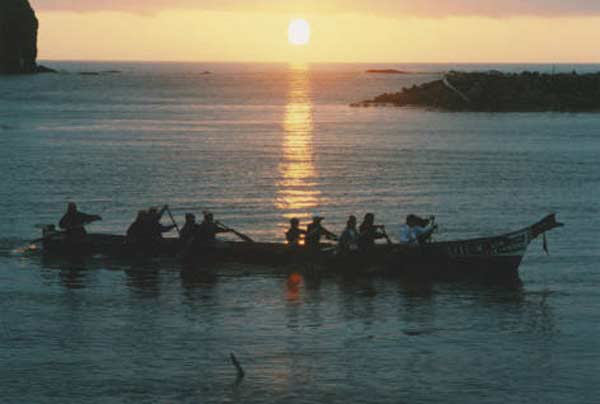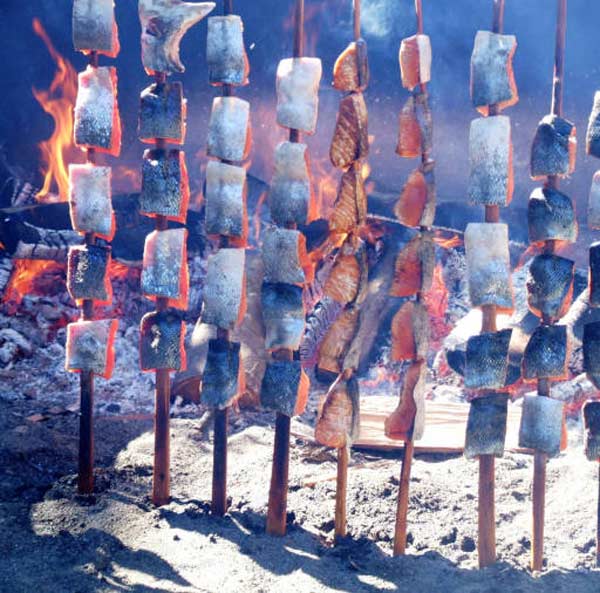Rural Heritage helps completion of Nisqually tribal collection
Canoers paddling near La Push just before sunset. (Photos courtesy Allen Frazier)
Since its creation in 2007, the Washington Rural Heritage program has helped many local libraries, museums and other history-based organizations throughout the state compile, digitize and present historical photos of their communities.
The Rural Heritage program, part of the Washington State Library, just completed its most recent project: the Nisqually Indian Tribe’s “The Canoe Journeys – a Nisqually Perspective” collection, which documents the tribe’s participation in the annual event celebrated by indigenous peoples of the Pacific Northwest going back a quarter-century. This collection showcases photos and maps of the tribe’s paddling journeys to other tribes and places in the region, including the Lummi, Makah, Muckleshoot, Puyallup and Quinault.
Here is information provided by the Nisqually tribe on the tradition:
“Canoe Journeys” started in 1989 when nine cedar dugouts were paddled to Seattle as part of the Washington State Centennial Celebration. In Seattle, a challenge was presented to tribes to paddle four years later to Bella Bella, B.C. Some three thousand people showed up. Two canoes paddled from Washington State to Bella Bella and back, taking two months, covering about 1300 miles
“….this activity was quickly embraced and transformed into one that might serve to prevent substance abuse among the Native youth, while teaching traditional practices, values, and skills. Thus were borne the Full Circle Journeys of 1994 and 1995. From there the Canoe Journeys have taken place every summer, with hosting Tribes from British Columbia, south along Washington’s coast, and all around Puget Sound.”
Pieces of salmon cooking near an open fire during a canoe journey.
The collection project was financed by a 2013 WRH grant. The photos in the collection were taken by Allen Frazier, who has participated in the canoe journeys over the years. Frazier’s photos were previously inaccessible to the public and the negatives were already beginning to deteriorate, according the Rural Heritage staffer Evan Robb.
Robb said the Nisqually collection will be updated in the future, with additional maps and place names and other tribal names in the Lushootseed language, which has its own phonetic symbols and special encoding, he added.

